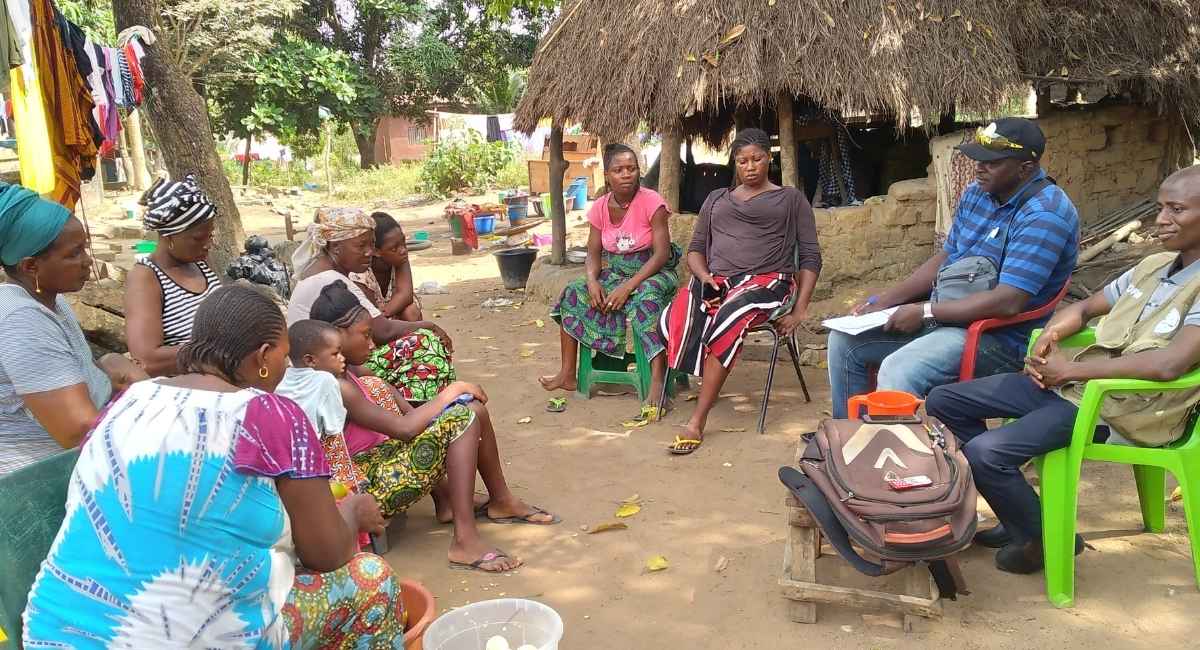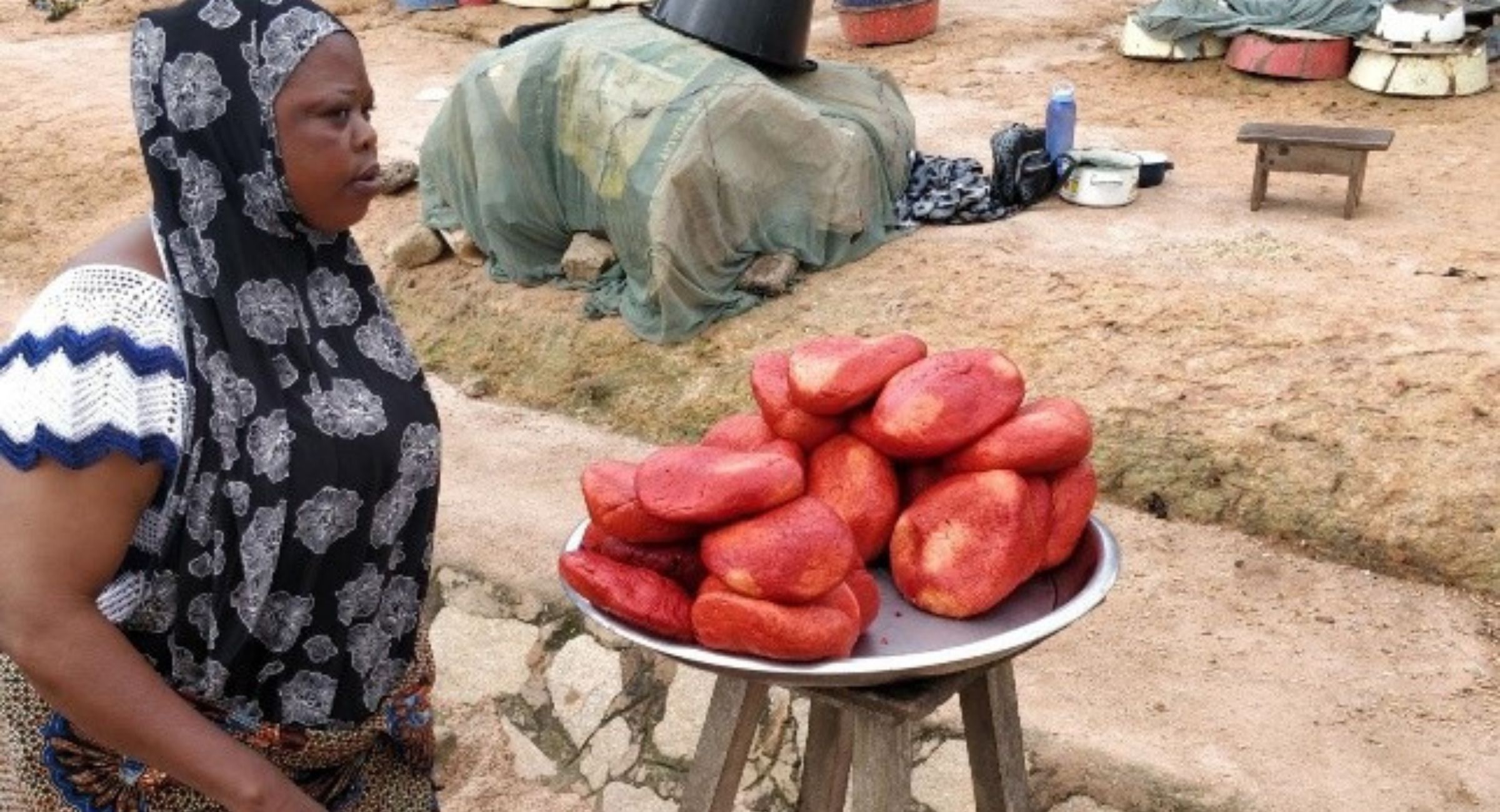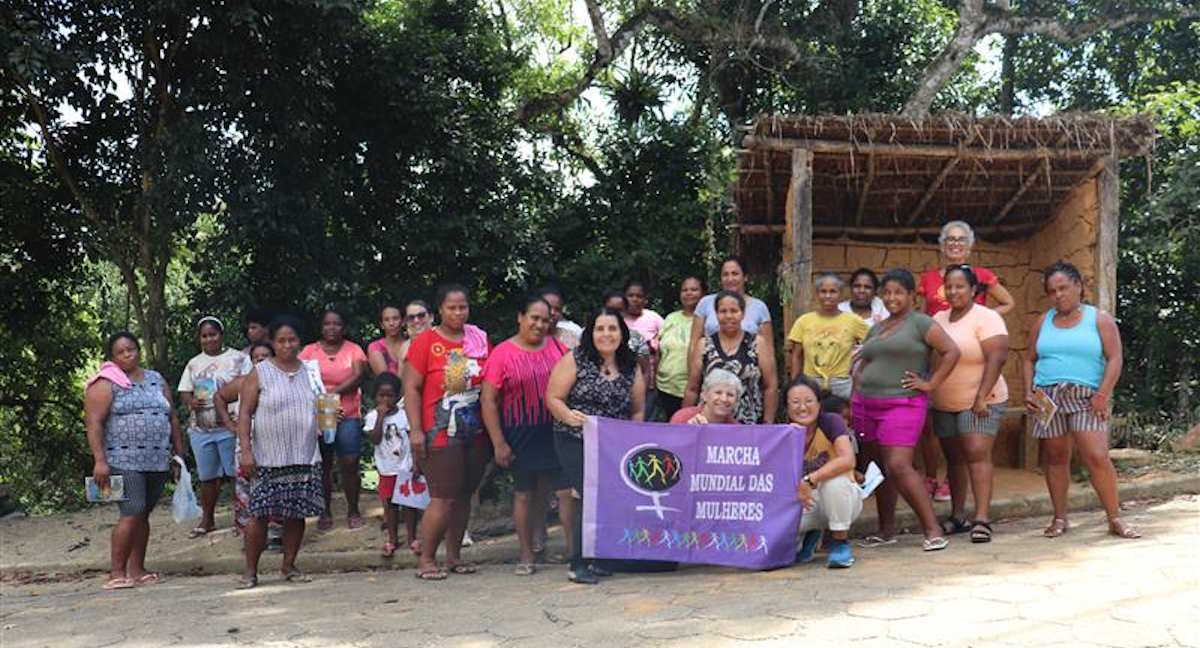The water hyacinth is an invasive plant that is colonising the waters of Lake Nokoué, in the south of Benin. It is damaging biodiversity, and preventing ship traffic and the development of certain economic activities such as fishing. To reduce its proliferation and provide organic fertiliser to farmers in the area, together with market-gardeners in the neighbouring village of Sô-Ava, the Centre for pro-environmental action and sustainable development (Aced) designed a solution to compost this plant. The composting proved to be very effective and, when combined with other agroecological techniques and practices promoted by Aced, it enabled the development of quality, healthy vegetable production. For the last three years, Aced and GRET have been testing sales channels to ensure market outlets for these products.
Making agroecological products accessible, including in cities
Marketing of an increasing number of vegetable products generated by this agroecological transition is leading to organisational and logistical challenges. In order to encourage consumers to purchase these products at an affordable price, it is necessary to communicate on them and make them easily accessible. A point of sale was constructed in the Akassato market (in Abomey-Calavi, a city on the banks of Lake Nokoué) and another was set up in the Ahomey-Gblon market (Sô-Ava). These locations make it possible to display and sell groups of agroecological vegetables on market days. In parallel, Aced and GRET supported another trade model to supply the cities of Cotonou and Abomey-Calavi, putting market gardeners in contact with Agrikoo, a start-up specialising in distribution of fruit and vegetables in urban areas.
Certification to convince consumers of the quality of products
In order to reassure consumers regarding the healthy nature of the products marketed, Aced and GRET supported market gardeners to obtain PGS (Participative guarantee system) certification for their produce. This certification was chosen for its participative nature and its price, which is affordable for small producers. A pilot group of around fifty family producers federated in three cooperatives was selected based on stringent criteria: possession of a licence number, experience in agroecological market gardening production, representation of women in executive offices, and the joint surface area of the group, among other criteria. Having been trained by an approved facilitator and monitored by a certification system made up of producers, consumers, Fupro, organic stakeholders and some State services, these three cooperatives obtained their certificate, which is valid for two years. The PGS certified vegetables produced by the groups were prioritised for marketing by Agrikoo.
Promising results
Today, market gardeners have secure channels to market their vegetables and have significantly reduced post-harvest losses, from 35% to 8%.
During the 2021-2022 crop year for example, a processor specialising in vegetable dehydration and pre-cooking purchased 100kg of African eggplant, the most commonly consumed local leafy vegetable in Benin. During this same crop year, Agrikoo marketed 921 kg of Celosia, 565 kg of African eggplant and 400 kg of PGS certified pimentos.
New possibilities for diversification are also being explored: numerous restaurant owners and supermarkets in Cotonou and Abomey-Calavi showed an interest in receiving regular deliveries of fruiting and leafy vegetables.
For Ms. Laurenda Todome, director of operations at Aced “now the challenge is to seize more market opportunities, extend the PGS certified market gardener base and raise households’ awareness on consuming local produce, together with the Benin consumers’ association. We also need to develop more effective advocacy vis à vis the Beninese State”.




